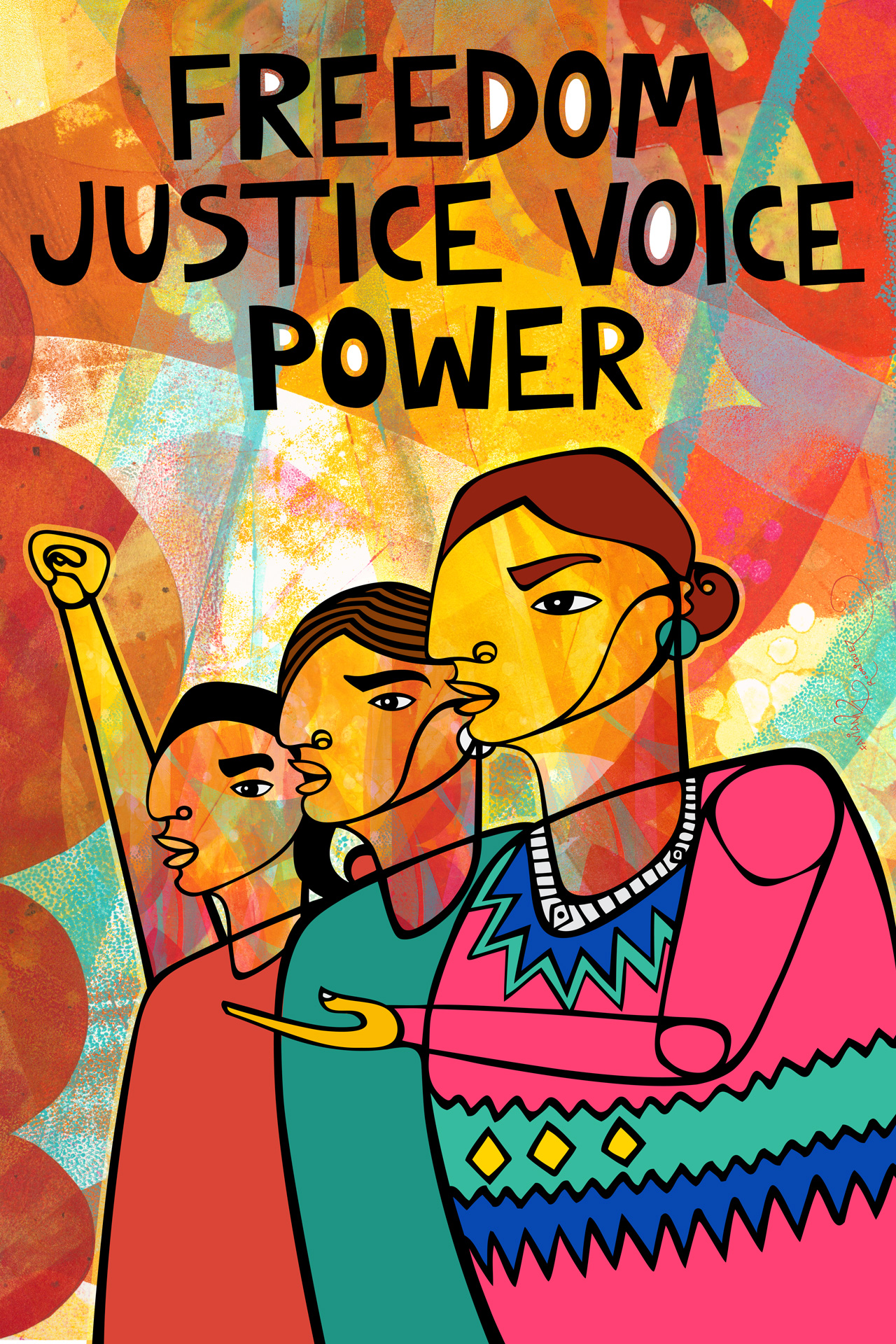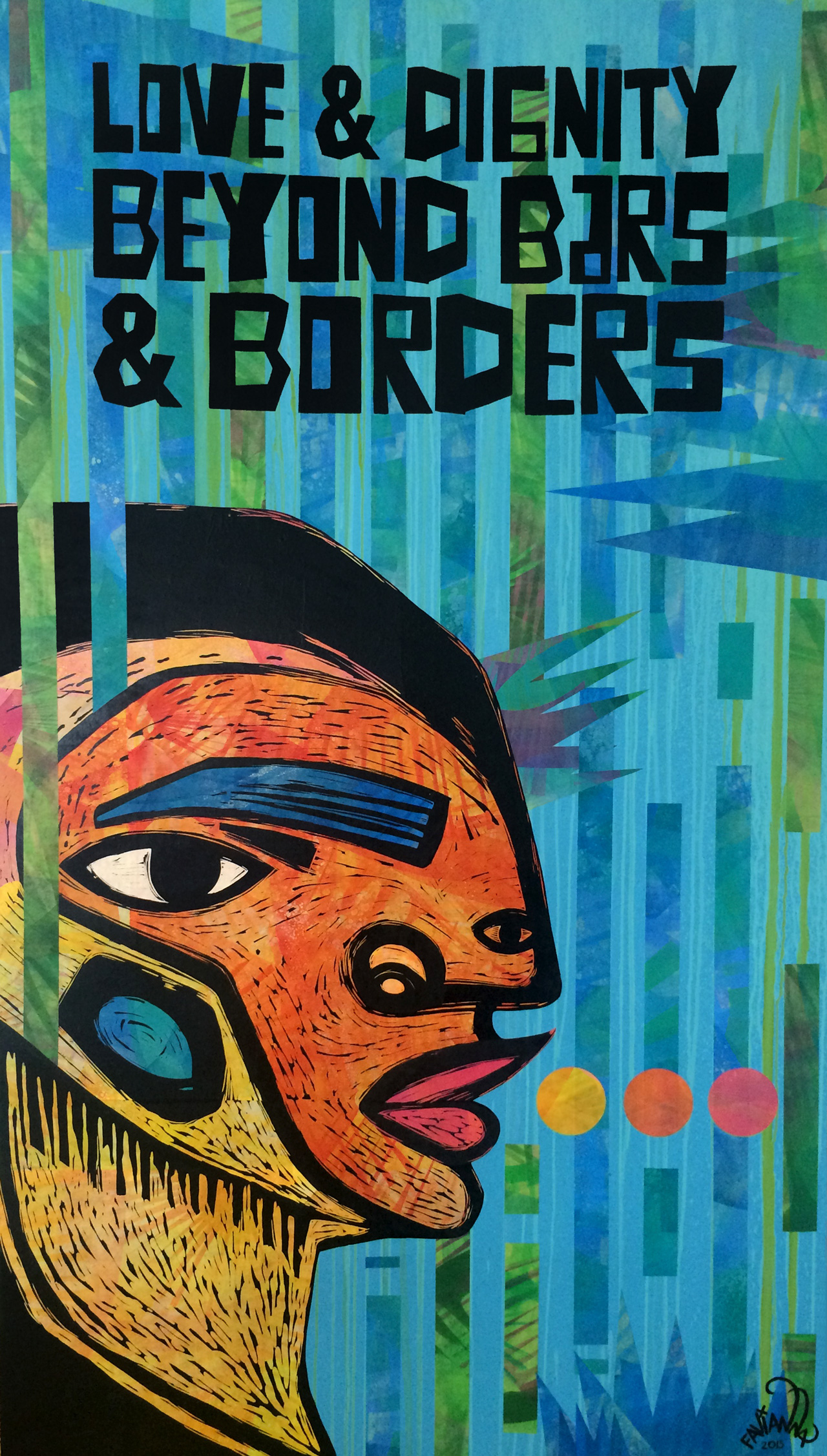News feed

California-based interdisciplinary artist, cultural strategist, and social justice activist Favianna Rodriguez explores notions of migration, gender justice, climate change, racial equity, and sexual freedom in her work. In addition to her expansive studio practice, she is the co-founder and president of The Centre for Cultural Power, a national organisation that empowers artists to disrupt the status quo and ignite change at the intersection of culture and social justice.
“I’ve been exploring themes of social justice since my childhood,” she says. “I grew up in Oakland, California, during the era of the war on drugs. As a kid, I was very disillusioned by the ways in which society failed communities of colour. I witnessed early on the ways in which racism and anti-immigrant sentiment shaped laws and affected my family and community. Although I did not understand it at the time, I felt that the violence, pollution and injustice happening around me was wrong. I also experienced the invisibility of Latinx people in arts, culture, and media.
READ MORE: EXPLORE THE ‘NEW WAYS OF SEEING’ SERIES HERE
Art was always a safe place where I could create another reality for myself, despite what was happening around meme,” Rodriguez continues. “It was a place where I could tell my story and be my full, authentic self. I formally started my artistic career in 1999 in college. By that point, I was deeply committed to social change work, because I had spent most of my high school years working to transform my school and participating in the growing youth movement that was happening in the Bay Area. Social justice is just so deeply embedded in my creative practice. Every mark on the paper, every decision that I make around colour, shapes and themes are all grounded in my lived experience and my deep desire to be free.

In the current climate of social, economic, sexual, and racial injustice, does Rodriguez believe that art has a duty to engage with issues? “Absolutely. I believe that as artists, we have the power to transform culture by transforming the way people think and behave,” she says. “Art is powerful because it leverages the imagination and speaks to our human emotions. Art is not about one issue, it is about a multitude of issues. Art is a reflection of life. The best art reflects moments in our lives and creates a record of them, a form of witness and a way of seeing that moment through a particular lens. In our world today, we face extreme economic inequality, climate chaos, gender inequity, and a migration crisis. The pandemic has demonstrated to us that the system of racial capitalism is not set up to care for people. It doesn’t foster a safe and healthy society in which each of us – regardless of race, gender or country of origin – can thrive. In the USA, the richest nation in the world, we are witnessing horrific racial disparities around COVID and economic recovery. And, at the global level, we are facing a climate crisis because of an economic system that is extracting from the planet, at a pace that the planet cannot keep up with. Our survival as a human species is at stake. Therefore, art is key in helping us find solutions. Art can soothe us, can expand our imagination, and can help move us towards solutions. The function of art is to transform our minds. I find it really troubling that for hundreds of years we have been centred on the perspective and art of white men. We’ve gotten used to seeing art as a reflection of just one kind of lived experience, and that has had real consequences in the kinds of policies that exist in the United States and in the world. Art absolutely has a duty to depict our current realities, because art is precisely the lens through which we can solve things. That’s what I call Cultural Power. We cannot divorce the power of art from the realities of our time, because if we do that, we are subscribing to a very one-sided notion of art, which is a white colonial notion that only centres the experiences of the white elite. That is a system that I refuse to subscribe to.”
“I believe that a lot of the current systems around how we engage with art are broken and inequitable, and set up in a way that BIPOC artists, women artists, LGBTIQ+ artists, and disabled artists face tremendous barriers. I saw this 20 years ago and the challenges continue today. To remedy this, I sought out opportunities with organisations, social movement groups and local governments who wanted to do something different. Today I continue to work in this way. I recently partnered with the City of San Francisco on two public art projects. In the past, the city had worked with predominantly white artists, but they recently adopted a racial justice mandate and that has meant a different way of working. These are exactly the types of interventions we need – full commitment to racial equity and inclusion. At the US-Mexico border, my organisation is helping to train artists on how they can tap into their own cultural power to transform the border region and move away from a solely militarised narrative towards a narrative that celebrates and embraces the beauty of a region in which two cultures come together. I strongly believe that art should not just be about pain, it also must be about joy and the resilience.”
Explore more of Favianna’s work on her website.









